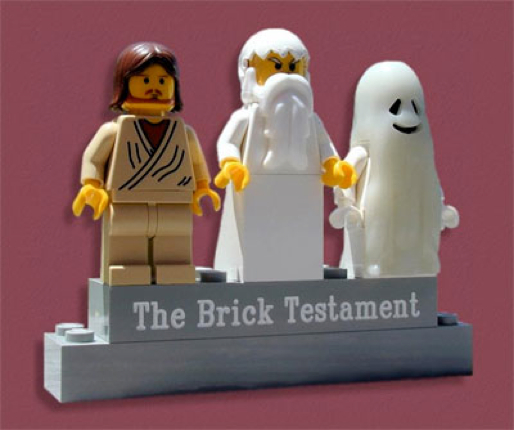Goodeknight
New member
Well, Montana, I hope for your sake that when you leave this world you run into Lego Jesus!Montana Smith said:Here's a little materialistic parable that is in no way meant to poke fun at faith:
When I was a child I was brought up to believe in the wonder of Lego.
.....
So, I do understand the warm and fuzzy feeling of comfort that some people can obtain from religious faith. It's just that I get the warm and fuzzy feeling from material objects that inspire nostalgia,
'Cause you don't want to see Lego Hell!

Good luck with material objects!
Mickiana said:There is no correct path. The religious feeling is a very personal one and is also much the same by nature for everyone. The inspiring architecture of an old church, the majesty of a mountain, the serenity of a backyard garden, the stars or a kind act - are some of the things that can bring about a religious or reverent feeling. We are here, at least, to ponder.
Funny, but There Is No Correct Path is practically another term for the New Age path. It's like goths saying they're nonconformists because they all wear the same black, noncomformists' uniform. (And New Age and pagan are almost synonymous. They just repackaged it and gave it a new name to make it more appealing.)
As RS said (almost correctly), who is the Way, the Truth, and the Life? That's what Jesus Christ called himself, saying, "No one gets to the Father except through me." The three options for this statement were the subject of a book. He's either liar, lunatic, or Lord. You can't say he was a great guy like many other great guys, or a prophet, like many other prophets.
And though no one has said it in this thread, 'All paths to the same God' is sure to come up at some point, so I'll head it off here by bringing it up myself. All religions are paths to the same God if you kind of close one eye, squint, and ignore 98% of each path's beliefs.
Now, as for the issue of eternity, heaven, and hell, look at it this way. Most people will at least admit that heaven and hell are possibilities. Give it a percentage if you like. Say there's a 10% chance, in your mind, that heaven and hell exist. Now, people spend a lot of money on the 1 in 600 million shot at winning the lottery. If you're a nonbeliever, but you're able to admit the possibility of heaven and hell, are you willing to risk eternity over a 1 in 10 chance?
That's a thought worth pondering.


 Hence the conundrum of Pascal's Wager. What you put your faith in, should be the discourse, not whether or not we have the capacity to.
Hence the conundrum of Pascal's Wager. What you put your faith in, should be the discourse, not whether or not we have the capacity to.